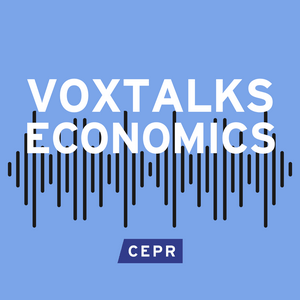Recorded live at the CEPR Annual Symposium in Paris.
When VoxTalks Economics visits a symposium or conference, we try to find the most interesting new research from economists who are just starting out in their careers. In Paris we invited three of them to the CEPR Office to tell us about their work.
In this episode, Tim Phillips talks to Lucie Giorgi, Aix-Marseille School of Economics (AMSE), whose research tracks the impact of sex segregation in French elementary schools; Alishuba Philip of the University of Zurich, who has investigated why slum redevelopment often doesn’t benefit the people who live there, and Ali Bakhtawar – also of AMSE – about Lawfare in Pakistan.


